The UN Declaration of the Micro and Small Business (MSMEs) Day, spearheaded by the International Council for Small Business (ICSB), has been a critical milestone in the fulfillment of ICSB’s mission to support entrepreneurs and small business is progressing towards inclusive economic growth. The Declaration, while highlighting the complexity and the multidimensionality of the entrepreneurial role, recognizes the role of MSMEs in the achievement of the UN – Sustainable Development Goals (SDGs).
The ICSB Forums held at the United Nations Headquarters in New York, together with the organization of a broad portfolio of congresses and conferences all around the world, have been valuable opportunities to connect and celebrate organizations and individuals committed to helping MSMEs move in the direction of creating more decent jobs while protecting the environment as well as their local communities. This movement fostered a new type of research activity around the concept of the Humane Approach to Entrepreneurship. In particular, thanks to the pioneering work of Prof. Ki-Chan Kim and Ayman El Tarabishy, an international group of researchers was assembled to define the concept (humaneentrepreneurship.org) better. This was intended as a model for firms’ growth based on entrepreneurial orientation, leadership, and fair human resource management. Furthermore, in a pair of articles published by JSBM (56-S1, 2018), the Humane Entrepreneurship concept was at first defined as a means to create both financial wealth and new high-quality jobs (Ki Chan et al., 2018), and, subsequently, as a strategic posture defined by the capability to provide leverage on Entrepreneurial Orientation, and at the same time, on orientation towards executive and employees welfare and orientation towards social and environmental sustainability (Parente et al. 2018, Parente et al. 2020).
Today, management and entrepreneurship research is theory-driven to a much larger extent. A significant challenge for Humane Entrepreneurship research, therefore, is to prove the existence of Human Entrepreneurship Orientation (HumEnt) and define a measurement scale for performing analysis with a solid theoretical grounding. This special issue is a starting point to make suggestions as to exactly how this should be done. We do note, however, that strategy research increasingly deals with dynamic issues that are mostly entrepreneurial. Potentially, Humane Entrepreneurship research can find its ideal habitat within these proactive approaches in strategy research.
The focus on orientations is a well-grounded perspective from which to study entrepreneurship at the firm level (Miller and Friesen, 1982; Covin and Slavin, 1991; Lumpkin and Dess, 1996), and is in line with the Theory of Planned Behaviour (TBP) (Ajzen, 1991), which states that behavioral intentions guide our decision pathways.
From this point of view, Humane Entrepreneurship (HumEnt) can be viewed as a strategic posture that inspires new forms of entrepreneurial strategies for wealth creation (Ireland and Al, 2001). This can be compared to the triple bottom line approach that argues for jointly optimizing social, environmental, and economic returns (“people, planet, profits”). The inventor of that concept, John Elkington, recently noted that scholars and managers have struggled to operationalize it productively. Interestingly, his proposed operationalization looks much like the theme of humane entrepreneurship offered here (Kraaijenbrink, 2020 .) Another even older approach is from EF Schumacher’s classic Small is Beautiful: A Study of Economics as if People Mattered that argued that while humans enable any system, should systems also enable humans? One needs entrepreneurial thinking to make that happen. To Elkington’s point, how do we move from trade-offs between his 3 Ps toward synergies?
The concept of HumEnt as a new theoretical construct has its roots in well-established fields of studies in Management and Entrepreneurship. One of the primary inspirational sources can be found within Corporate Social Responsibility (CSR), a conceptualization that captures the idea that corporations have not only economical (and legal) obligations but some ethical and discretionary (philanthropic) responsibilities as well (Carroll, 1991). The CSR influence on the strategic entrepreneurship theory is not new at all; an example can be found in Hitt et al. (2011), where they argued that successful strategic entrepreneurial activity should create value for customers, stockholders, and other stakeholders.
From a broader perspective, the Humane Entrepreneurship concept is in line with a philosophical line of thought that argues over the influence of ethical dimensions in the emergence of orientations and behaviors of economic agents. Even if traces of this discourse can already be found in the works of enlightenment philosophers that defined the field of economy as a new scientific field in the 18th century, more recently, there has been a rising interest in the role of ethics in management. The ethics perspective has to lead to a fine-grain distinction between immoral, amoral, and moral orientations in management (Carroll, 2001), while more recent work introduced the difference between egotistic, altruistic, and biospheric orientation (De Groot and Steg, 2008). On a positive side, Humanistic Management emerged as a managerial (and possibly entrepreneurial) orientation characterized by “management which emphasizes the human condition and is oriented to the development of human virtue, in all its forms, to its fullest extent” (Melé 2003).
Humane Entrepreneurship, as a strategic posture, is still in its infancy state and, similar to concepts focusing on entrepreneurship at the firm-level, needs an effort of clarification about the epistemology of firm-level orientations, real entrepreneurial events, and organizational performances, and the structure of the links between them (Kantur, 2014).
Visit Journal Here
Special Issue Editor(s)
KiChan Kim, Catholic University
kckim.kckim@gmail.com
Roberto Parente, Salerno University
rparente@unisa.it
Alex DeNoble, San Diego State University
adenoble@sdsu.edu
Jeffrey Hornsby, The University of Missouri–Kansas City
hornsbyj@umkc.edu



